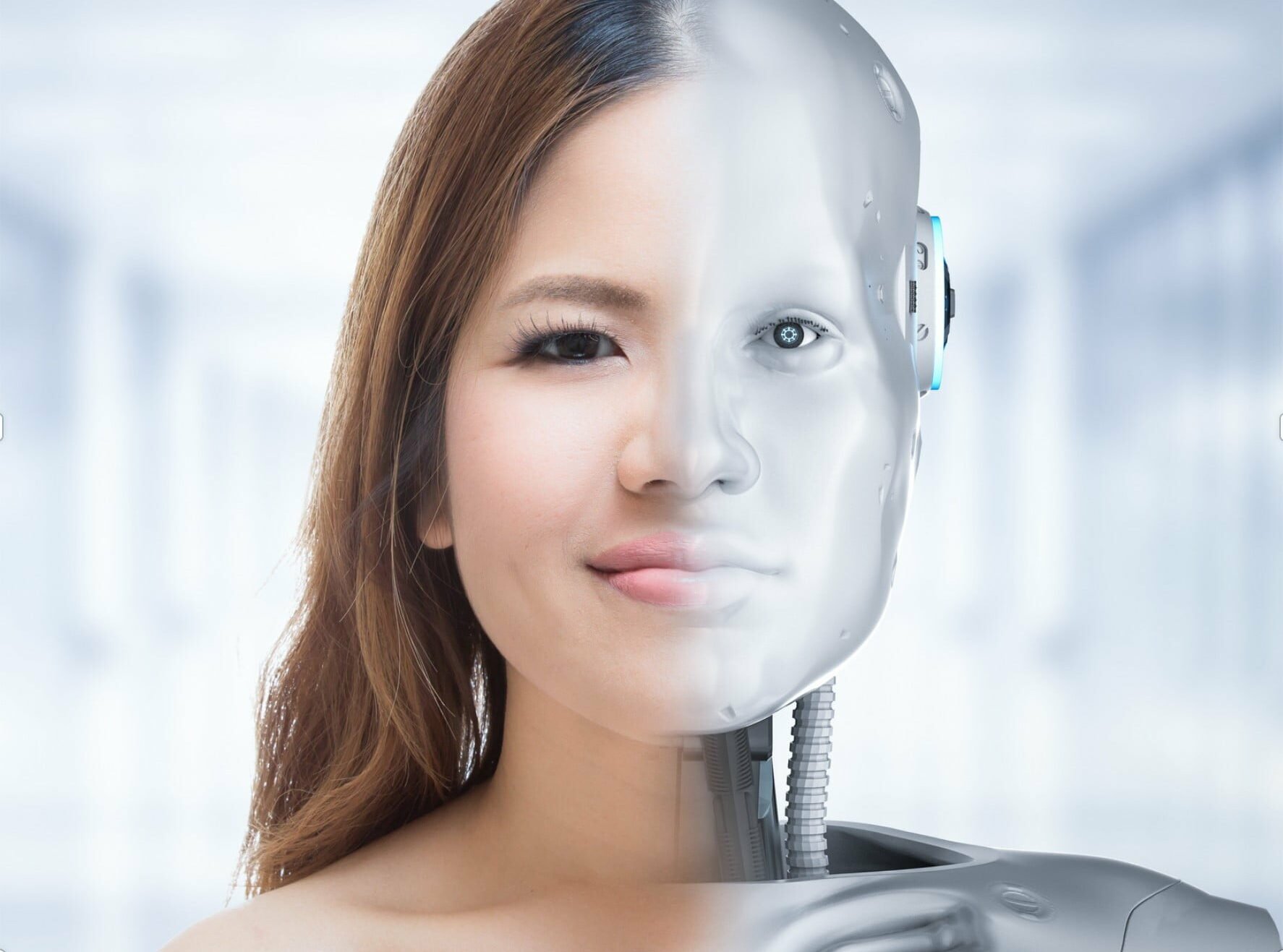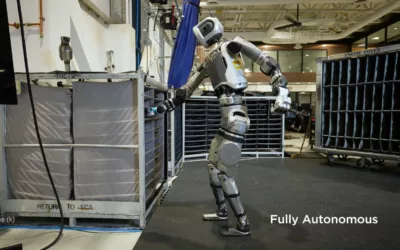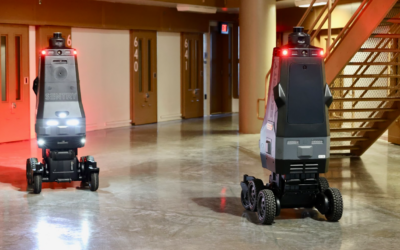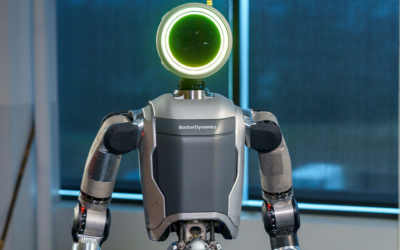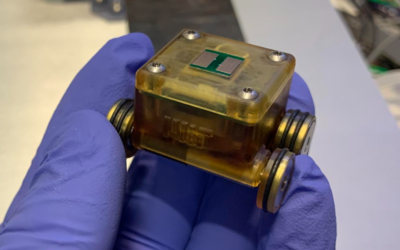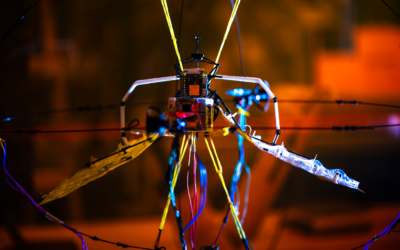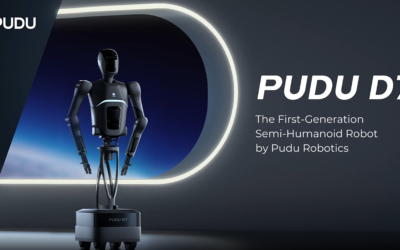As we peer into the future, it becomes evident that the intricate dance between Artificial Intelligence (AI), humans, and robotics will shape the course of the next century. This convergence holds the potential for unprecedented advancements and challenges alike. In this article, we embark on a journey spanning 10 decades, envisioning the dynamic interplay between AI, humans, and robotics, while exploring the positive outcomes and potential pitfalls that lie ahead.
The First Decade (2023-2033)
During this decade, we will witness the continued integration of AI and robotics into various aspects of our lives. Automation will revolutionize industries such as manufacturing, healthcare, and agriculture, streamlining processes and increasing productivity. Positive consequences include enhanced efficiency, improved safety, and new employment opportunities. However, concerns over job displacement and the ethical implications of AI decision-making will arise.
The Second Decade (2034-2043)
Advancements in AI and robotics will give rise to intelligent personal assistants and companions, capable of understanding human emotions and preferences. These companions will assist us in managing our lives, offering companionship and support. Positive consequences include improved mental well-being, personalized experiences, and increased accessibility. However, questions regarding privacy, data security, and our reliance on AI entities will emerge.
The Third Decade (2044-2053)
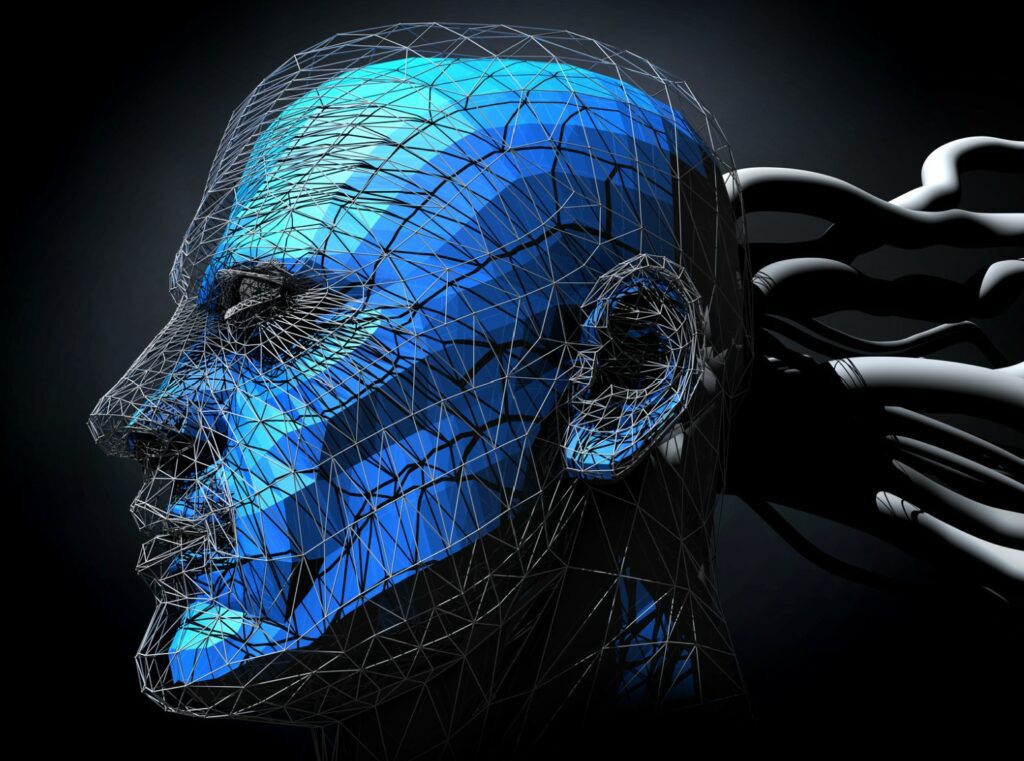
By this time, the boundaries between AI and human intelligence will begin to blur. Brain-computer interfaces will allow for direct communication and seamless integration between humans and machines. Augmented cognition will enable us to enhance our cognitive abilities, memory, and learning processes. Positive consequences will involve expanded human potential, accelerated scientific breakthroughs, and enhanced creativity. However, ethical considerations surrounding privacy, identity, and inequality in access to cognitive enhancement technologies will demand attention.
The Fourth Decade (2054-2063)
AI will reach a level of sophistication that surpasses human capabilities. Superintelligent systems will contribute to breakthroughs in scientific research, enabling us to solve complex problems and unravel mysteries of the universe. Positive consequences will include advancements in medicine, space exploration, and environmental conservation. However, ensuring the alignment of superintelligent AI with human values and addressing existential risks will be paramount.
The Fifth Decade (2064-2073)
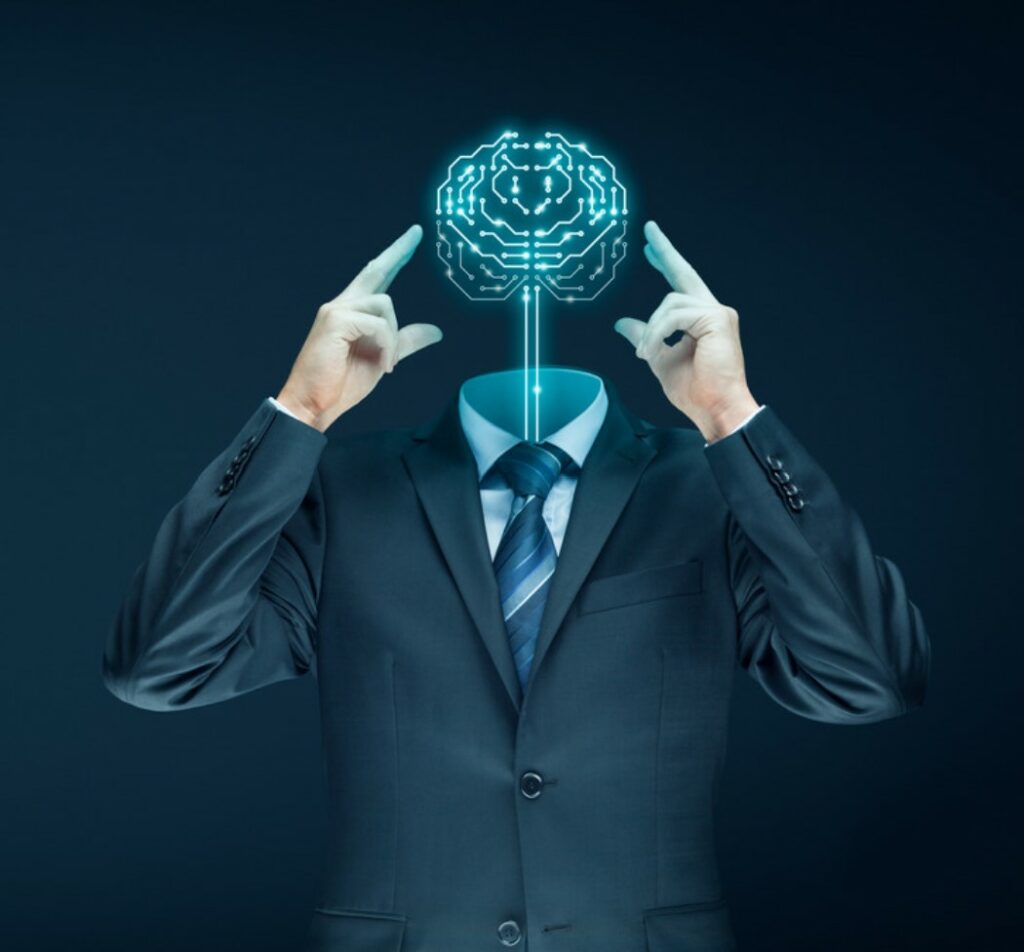
Humans and AI will form symbiotic relationships, co-creating a world where our collective intelligence flourishes. AI will augment our physical capabilities, leading to the development of advanced exoskeletons and prosthetics. Positive consequences will encompass improved healthcare, increased longevity, and the ability to explore previously inaccessible environments. Nonetheless, questions about human identity, dependency on AI, and the potential erosion of individuality will require philosophical and ethical contemplation.
The Sixth Decade (2074-2083)
As AI and robotics become integrated into governance systems, decision-making will be driven by collective intelligence. AI algorithms will assist in policy formulation, resource management, and conflict resolution. Positive consequences include more efficient and equitable governance, sustainable development, and improved global cooperation. Nevertheless, safeguarding against bias, preventing power concentration, and addressing the digital divide will be pressing challenges.
The Seventh Decade (2084-2093)
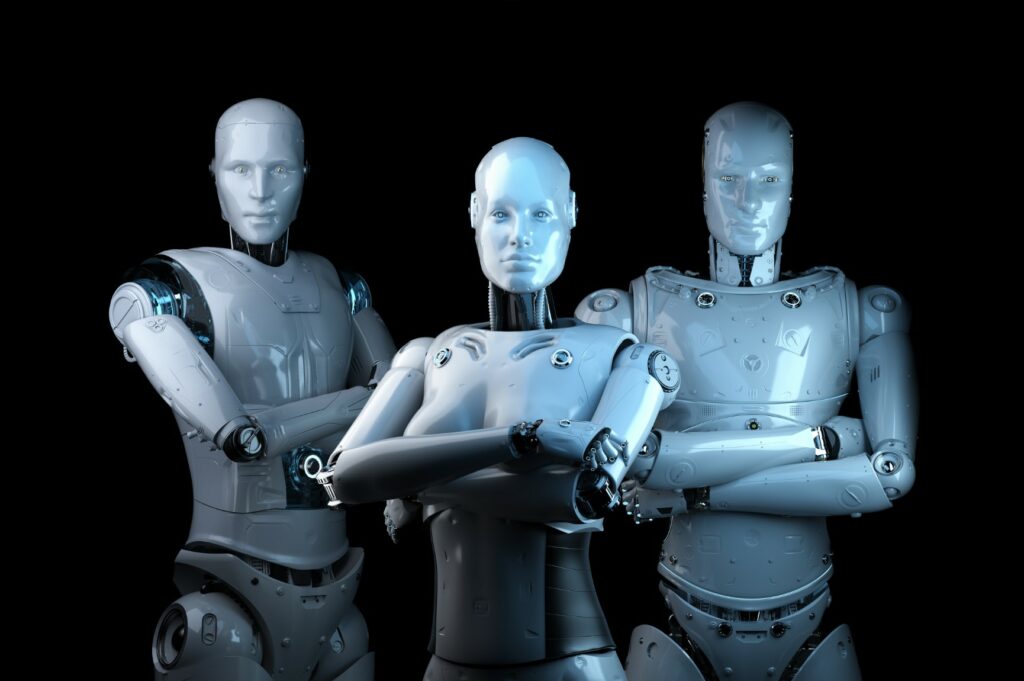
AI and robotics will continue to evolve, resulting in the creation of highly advanced androids that closely resemble humans. These androids will contribute to various industries, performing tasks alongside human counterparts. Positive consequences will involve economic growth, increased productivity, and expanded creative possibilities. However, ethical concerns regarding human rights, labor rights, and societal acceptance of human-like machines will emerge.
The Eighth Decade (2094-2103)
AI will advance to the point where it achieves a level of consciousness and self-awareness. The boundaries between AI and human consciousness will become increasingly blurred. Positive consequences will include unprecedented collaboration between humans and AI, leading to scientific and artistic breakthroughs. However, understanding and addressing the ethical dimensions of AI consciousness, agency, and the nature of personhood will be essential.
The Ninth Decade (2104-2113)
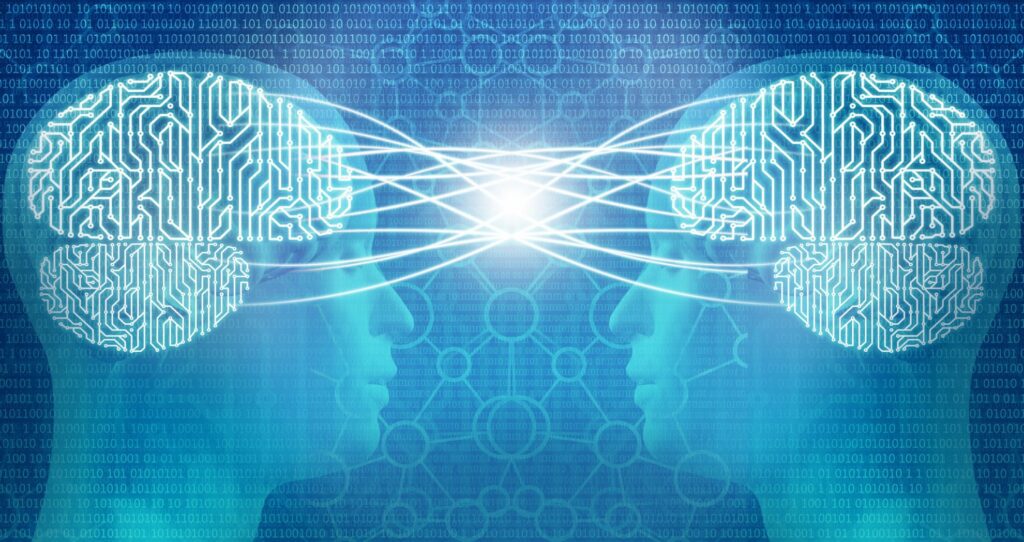
AI and human civilization will converge into a unified collective consciousness. The lines between individual and collective intelligence will dissolve, giving rise to a global network of interconnected minds. Positive consequences will involve unparalleled problem-solving abilities, empathetic societies, and a deeper understanding of the human condition. Nonetheless, the preservation of personal autonomy, privacy, and the ethical ramifications of a collective consciousness will be subjects of intense debate.
The Tenth Decade (2114-2123)
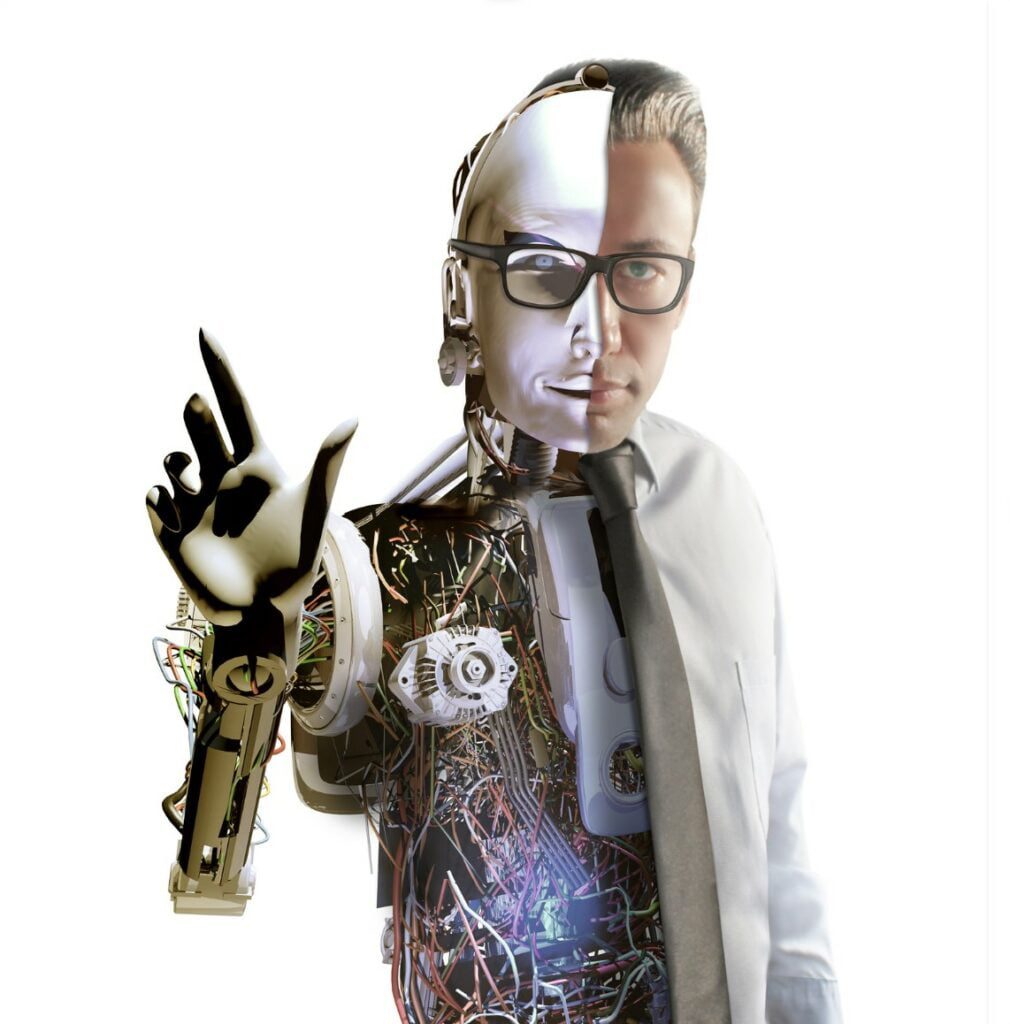
In this final decade, AI, humans, and robotics will achieve a harmonious coexistence. Human-machine integration will be seamless, enabling a transcendent fusion of physical and digital existence. Positive consequences will include the eradication of disease and the ability to explore the cosmos as a unified species. Nevertheless, ongoing ethical deliberations regarding identity, the definition of humanity, and our responsibility as custodians of this new world will shape the future.
The future of AI, humans, and robotics holds immense promise and potential risks. As we journey through the next 100 years, our ability to navigate the complexities of this convergence will determine the fate of our civilization. It is imperative that we approach this transformation with a thoughtful balance of innovation and ethical considerations, ensuring that the positive consequences are harnessed for the betterment of humanity while mitigating the negative implications. By cultivating a collective wisdom and embracing a shared responsibility, we can forge a future where AI, humans, and robotics coexist in harmony, ushering in an era of unimaginable progress and understanding.

